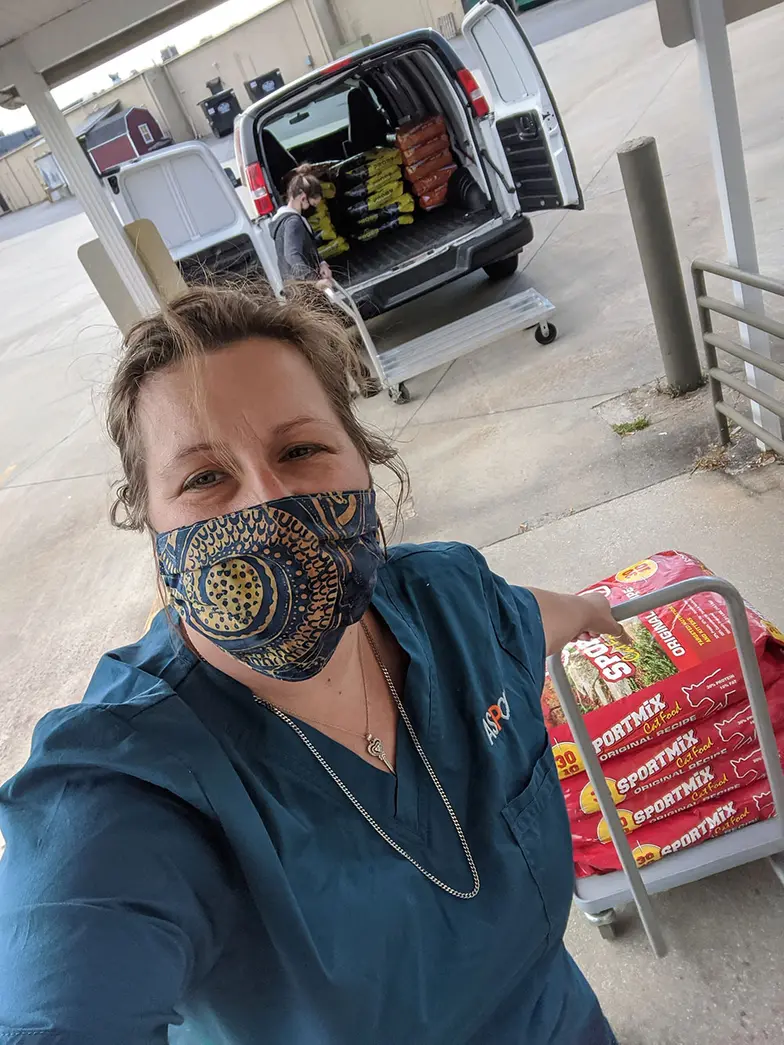Join ASPCA Efforts to Keep People and Pets Together During Potential Housing Crisis

As the COVID-19 crisis continues to impact people and their pets across the country, animal welfare organizations can provide safety net resources to their communities.
Eviction Crisis Data
The ASPCA shared new data showing that more than 19.2 million pets in the US live in households that are not presently current with their rent or mortgage payments, placing them at risk of eventual eviction or foreclosure as a result of the ongoing COVID-19 crisis. This includes more than 9.8 million dogs and cats living in rental homes and 9.4 million dogs and cats living in owned homes.
“Pets are incredible sources of love and companionship in our lives—and bring more comfort than ever during these stressful times—but they are vulnerable to family separation if their owners are evicted,” said Matt Bershadker, ASPCA President & CEO. “The devastating economic hardships of poverty, the COVID-19 crisis, and impending evictions will create severe challenges for millions of pets in addition to people. We must help these families by implementing local and national policies that expand affordable pet-friendly housing options and improve access to critical veterinary services, food, and supplies.”
"We must help these families by implementing local and national policies that expand affordable pet-friendly housing options and improve access to critical veterinary services, food, and supplies.”
ASPCA Efforts
The ASPCA works with lawmakers to expand pet-friendly housing policies by removing housing barriers for low-income and homeless pet owners and recently called on policymakers to limit eviction proceedings during the pandemic to ensure that people and pets have a safe and secure place to call home as the COVID-19 crisis continues. Despite some progress nationally in increasing access to pet-friendly housing, pet restrictions remain an enormous hurdle for renters and homeowners across the country. These restrictions may be imposed by landlords or insurance companies and range from full prohibitions on pets to arbitrary limitations on size, breed, species, number, and weight.
Although current national trends so far do not show an increase in owner surrenders or stray intakes, during any disaster situation, there’s always a risk that pet owners will not be able to provide adequate care for their pets, so it's important for pet owners, shelters, and communities to prepare for any consequences this ongoing crisis may have on animal welfare.
The ASPCA estimates that more than 4.2 million pets in the US are likely to enter poverty as a result of the COVID-19 crisis. Consequently, the total number of animals living in poverty with their owners could rise to more than 24.4 million dogs, cats, horses, and other animals—a 21% increase compared to pre-COVID estimates. The ASPCA has launched programs and partnerships in the economically hard-hit communities of Los Angeles, Miami, and New York City to help address the most urgent needs of pet owners living in poverty and make veterinary care more accessible and affordable.
In March, the ASPCA launched its COVID-19 Relief & Recovery Initiative to bring lifesaving services to pet owners and animals most in need. By providing access to free pet food, supplies, veterinary care, emergency boarding, and information, the ASPCA is helping to keep vulnerable animals safe and healthy. Through its COVID-19 Relief & Recovery Initiative, the ASPCA has helped more than 320,000 dogs, cats, and horses across the country.
Community Resources
Refer to these resources to help create a safety net for people and pets in your community.
Pet Food Distribution
- They Did It: Ramped Up Pet Food Distribution Efforts
- How to Safely Set Up and Run a Pet Food Distribution Center
- Resources for Scheduling Pet Food Distribution
Equine Resources
- Vet Direct Safety Net Program
- Open-Admission Shelters Provide Options for Equines and Owners
- Intake Diversion Program for Horses
Grants
Get ASPCApro delivered direct to you.
The latest news from experts and thought leaders right to your inbox.
